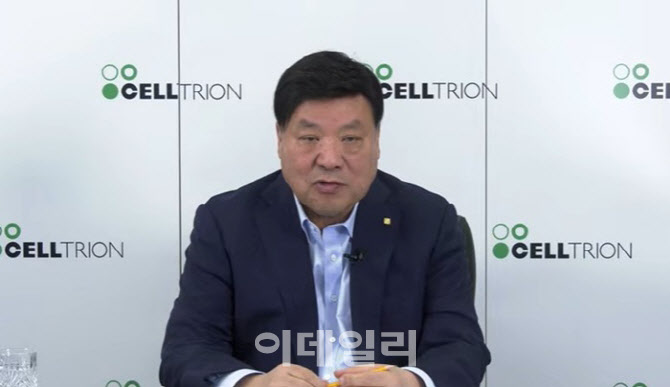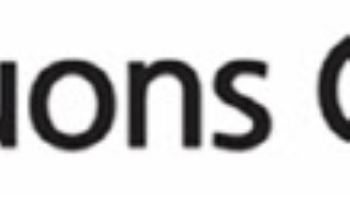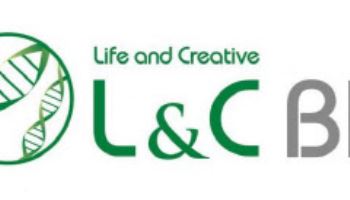Celltrion Unfazed by U.S. Price Cuts, Tariffs Zymfentra Drag Tied to Insurance
[Song Young-doo, Edaily Reporter] Celltrion Group Chairman Seo Jung-jin emphasized that recent U.S. measures to reduce drug prices and impose tariffs will have no significant impact on the company. Regarding sluggish sales of Zymfentra in the U.S., Seo cited delays in its listing by insurers as the main factor.
During an online press conference held by Celltrion on May 15, Seo addressed concerns about the Biden and Trump administrations’ drug pricing reforms and tariff changes, while outlining the company’s business outlook for the year.
Drug Price Cuts, A Strategic Advantage for Biosimilars
Seo said U.S. drug pricing reforms could actually benefit biosimilar developers. “The executive order primarily aims to lower U.S. drug prices, which are often higher than in other countries” he explained. “The policy is focused on addressing inefficiencies in the supply chain, including pharmacy benefit managers(PBM), and this could open up opportunities for biosimilar companies.”
According to Seo, biosimilars are already priced at roughly 10% of the wholesale acquisition cost(WAC) of originator drugs in the U.S., leaving limited room for further price reductions. As a result, Celltrion’s core biosimilar portfolio is unlikely to be impacted. However, he noted that Zymfentra, a novel drug, could be affected by the policy.
“Only Zymfentra may see some pricing pressure, similar to other original biologics” Seo said. “But its current market share is small, so the overall impact on the business will be minimal.”
Tariff Measures, Inventory and CMO Partnerships Offer Cushion
Seo also expressed confidence in Celltrion’s preparedness for potential U.S. tariff hikes. “We are well prepared regardless of what tariff policies are introduced” he stated. “Our U.S. sales of Remsima, Herzuma, and Truxima go through Pfizer and Teva, so they are not directly subject to tariffs.”
He added that Celltrion has secured inventory ranging from 15 to 21 months for its key products in the U.S., which should provide a buffer through the end of 2026. While the company manufactures active pharmaceutical ingredients(API) in Korea, final fill-and-finish processes are carried out in the U.S. and Europe. Through current CMO agreements, Celltrion can produce up to 3 million vials in the U.S., with plans to expand to 6 million if needed.
“About 15% of our API production is already outsourced through CMO partners, and we have long-term agreements with partners who can transition production to the U.S. if required,” Seo noted. “If tariffs become an issue after 2026, we’ll mitigate the impact through our CMO network.”
On a potential investment in a U.S. production site, Seo said, “Building a 100,000-liter facility in Korea would cost about KRW 1.3 trillion, while the same facility in the U.S. would cost KRW 2 trillion. We are evaluating 48 candidate sites across eight U.S. states. Once the U.S. tariff policy is finalized, we’ll make a prudent decision by year-end.”
Zymfentra’s Slow Start Blamed on Insurance Delays, Long-Term Biosimilar Expansion Ahead
Although Celltrion had initially projected KRW 700 billion in annual sales for Zymfentra, its Q1 sales amounted to just KRW 36 billion, prompting the company to revise its full-year forecast to KRW 350 billion.
“The sales slump is due to slower-than-expected insurance listings,” Seo explained. “We assumed that, like biosimilars, PBM contracts would lead to quick inclusion on insurance plans. But original drugs take 8~9 months to be listed. It’s been eight months since we signed the PBM contract, and the insurance listing is still pending.”
He added, “We expect it to be listed soon. The U.S. reimbursement system is quite different from others, and I’ve experienced the difficulties firsthand.”
Looking ahead, Celltrion aims to significantly expand its biosimilar pipeline from 11 products currently to 23 by 2030, and 40 by 2038. Seo also welcomed potential regulatory changes that could simplify clinical trial requirements for biosimilars.
“There are discussions about granting market authorization based on Phase 1 trials alone,” he said. “This means proving safety and efficacy in Phase 1 would be sufficient. For Celltrion, which develops, manufactures, and sells its own products, this could present even more opportunities.”
During an online press conference held by Celltrion on May 15, Seo addressed concerns about the Biden and Trump administrations’ drug pricing reforms and tariff changes, while outlining the company’s business outlook for the year.
|
Drug Price Cuts, A Strategic Advantage for Biosimilars
Seo said U.S. drug pricing reforms could actually benefit biosimilar developers. “The executive order primarily aims to lower U.S. drug prices, which are often higher than in other countries” he explained. “The policy is focused on addressing inefficiencies in the supply chain, including pharmacy benefit managers(PBM), and this could open up opportunities for biosimilar companies.”
According to Seo, biosimilars are already priced at roughly 10% of the wholesale acquisition cost(WAC) of originator drugs in the U.S., leaving limited room for further price reductions. As a result, Celltrion’s core biosimilar portfolio is unlikely to be impacted. However, he noted that Zymfentra, a novel drug, could be affected by the policy.
“Only Zymfentra may see some pricing pressure, similar to other original biologics” Seo said. “But its current market share is small, so the overall impact on the business will be minimal.”
Tariff Measures, Inventory and CMO Partnerships Offer Cushion
Seo also expressed confidence in Celltrion’s preparedness for potential U.S. tariff hikes. “We are well prepared regardless of what tariff policies are introduced” he stated. “Our U.S. sales of Remsima, Herzuma, and Truxima go through Pfizer and Teva, so they are not directly subject to tariffs.”
He added that Celltrion has secured inventory ranging from 15 to 21 months for its key products in the U.S., which should provide a buffer through the end of 2026. While the company manufactures active pharmaceutical ingredients(API) in Korea, final fill-and-finish processes are carried out in the U.S. and Europe. Through current CMO agreements, Celltrion can produce up to 3 million vials in the U.S., with plans to expand to 6 million if needed.
“About 15% of our API production is already outsourced through CMO partners, and we have long-term agreements with partners who can transition production to the U.S. if required,” Seo noted. “If tariffs become an issue after 2026, we’ll mitigate the impact through our CMO network.”
On a potential investment in a U.S. production site, Seo said, “Building a 100,000-liter facility in Korea would cost about KRW 1.3 trillion, while the same facility in the U.S. would cost KRW 2 trillion. We are evaluating 48 candidate sites across eight U.S. states. Once the U.S. tariff policy is finalized, we’ll make a prudent decision by year-end.”
Zymfentra’s Slow Start Blamed on Insurance Delays, Long-Term Biosimilar Expansion Ahead
Although Celltrion had initially projected KRW 700 billion in annual sales for Zymfentra, its Q1 sales amounted to just KRW 36 billion, prompting the company to revise its full-year forecast to KRW 350 billion.
“The sales slump is due to slower-than-expected insurance listings,” Seo explained. “We assumed that, like biosimilars, PBM contracts would lead to quick inclusion on insurance plans. But original drugs take 8~9 months to be listed. It’s been eight months since we signed the PBM contract, and the insurance listing is still pending.”
He added, “We expect it to be listed soon. The U.S. reimbursement system is quite different from others, and I’ve experienced the difficulties firsthand.”
Looking ahead, Celltrion aims to significantly expand its biosimilar pipeline from 11 products currently to 23 by 2030, and 40 by 2038. Seo also welcomed potential regulatory changes that could simplify clinical trial requirements for biosimilars.
“There are discussions about granting market authorization based on Phase 1 trials alone,” he said. “This means proving safety and efficacy in Phase 1 would be sufficient. For Celltrion, which develops, manufactures, and sells its own products, this could present even more opportunities.”
송영두 songzio@










![[단독]삼천당제약, S-PASS 특허 출원 철회...후속 특허 기술도 없을 가능성↑](https://image.edaily.co.kr/images/vision/files/NP/S/2025/05/PS25051500570b.jpg)

![바이오솔루션 임상 호재, 무증에 20%↑, 루닛 루머에 급락[바이오맥짚기]](https://image.edaily.co.kr/images/vision/files/NP/S/2025/05/PS25051500306b.jpg)
